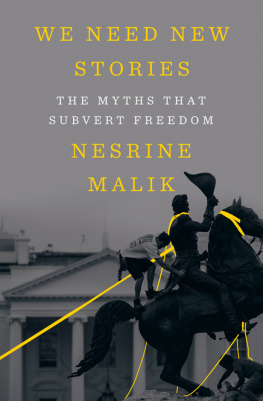First published in 1989 by
Kegan Paul International
This edition first published in 2010 by
Routledge
2 Park Square, Milton Park, Abingdon, Oxon, OX14 4RN
Simultaneously published in the USA and Canada
by Routledge
270 Madison Avenue, New York, NY 10016
Routledge is an imprint of the Taylor & Francis Group, an informa business
This translation Aisha Abdurrahman Bewley 1989
Transferred to Digital Printing 2010
All rights reserved. No part of this book may be reprinted or reproduced or utilised in any form or by any electronic, mechanical, or other means, now known or hereafter invented, including photocopying and recording, or in any information storage or retrieval system, without permission in writing from the publishers.
British Library Cataloguing in Publication Data
A catalogue record for this book is available from the British Library
ISBN 10: 0-7103-0361-0 (hbk)
ISBN 13: 978-0-7103-0361-5 (hbk)
Publisher's Note
The publisher has gone to great lengths to ensure the quality of this reprint but points out that some imperfections in the original copies may be apparent. The publisher has made every effort to contact original copyright holders and would welcome correspondence from those they have been unable to trace.
Introduction
Praise be to Allah, who sent our Prophet Muhammad as a mercy to the whole universe. He sent down the Noble Qur'an through him as a light and guidance for those who are godfearing. He commanded him to clarify what had been revealed to people so that they might reflect. His words and actions made clear to them everything they needed to know. He instructed those who were present with him to convey his teaching to those who were not there.
Blessings and peace be upon him and upon his family and his good and pure Companions who expended their property and their lives to spread the deen of Islam. By means of them Allah preserved His shari'a enabling it to survive through the passage of time down to the present time. Their hearts were the vessels which contained and preserved the ayats of the Clear Book and the sunna of the Seal of the Prophets and the Imam of the Messengers. Then those who followed them, and those who followed them in turn, undertook this task. The people who wrote down and recorded this knowledge appeared in the time of the third generation. The greatest of them was the Imam of the Abode of the Hijra, the Imam of the Imams, Abu Abdullah Malik ibn Anas al-Asbahi al-Madini. He took it upon himself to serve the shari'a and to preserve the Prophetic sunna. He did this by relaying it from those notable Tabi'un with whose knowledge he was satisfied and whose words he thought worthy of conveying and by his work he opened the way for all later writers and cleared a path for the compilation of Islamic law. He selected those transmitters who were reliable and rejected those who were weak. His book, Al-Muwatta, was the greatest book written at that time. It was the most precise in layout and the best of them in its choice of chapters. The other books written at the same time as his book have vanished but Allah had decreed that his book would remain until this time and indeed until the first of the two worlds comes to an end, when Allah will inherit the earth and all those on it. This has come about by the permission of the One who created the two worlds and the jinn and mankind.
I have been asked by some of our brothers, who desire to disseminate knowledge and to renew the call of Islam, to write an introduction to this edition of the Muwatta, which is the first translation of the Muwatta in the English language. I have complied with their request hoping for an abundant reward from Allah since we are well aware of the importance of this book, its blessings, the abundant knowledge to be found in it and its fame, both past and present, among the books written on the science of hadith by the Imams who are worthy of emulation.
We have divided this introduction into the following topics:
The Lineage of Imam Malik, His Family, His Birth and Autobiography
His full name is Malik ibn Anas ibn Malik ibn Abi Amir al-Asbahi and he was related to Dhu Asbah, a sub-tribe of Himyar, one of the Qahtani tribes who held sway over an immense kingdom during the period of the Jahiliyya. Their kingdom was known as the Tatabi'a (pl. of Tubba). Tubba is mentioned in two places in the Noble Qur'an.
His father's grandfather, Abu Amir, is considered by some to have been one of the Companions and it is mentioned that he went on all the raids with the Messenger of Allah, may Allah bless him and grant him peace, except Badr. However, Ibn Hajar mentioned in the Isaba from adh-Dhahabi that he did not find anyone who mentioned him as being one of the Companions, although he was certainly alive in the time of the Prophet. As for Malik ibn Abi Amir, the grandfather of the Imam, he was one of the great ulama of theTabi'un. He was one of those who assisted in the writing out of the noble Mus-haf at the time of the Amir al-Mu'minin, Uthman ibn Affan, may Allah be pleased with him.
He had four children: Anas, the father of the Imam, Abu Suhayl whose name was Nafi, ar-Rabi, and Uways the grandfather of Isma'il ibn Abi Uways and his brother, Abd al-Hamid. These two (Isma'il and Abd al-Hamid) were among the students of Malik and among the transmitters of the Sahih. The four brothers (i.e. Anas, Malik's father, and his brothers) transmitted from their father, Malik ibn Abi Amir, and others, in turn, transmitted from them. The most famous of them in knowledge and transmission was Abu Suhayl. Imam Malik related from him as did the compilers of the Sahih collections. Al-Bukhari, Muslim, and others transmitted a lot from Malik b. Abi Amir and from his son, Abu Suhayl.
From this it is evident that the Imam was a branch from a good tree whose men were famous for transmitting and serving knowledge. Part of the excellence of this family lies in the fact that it gave birth to Imam Malik. It is said that this took place in 90 A.H. although there are other opinions. He died when he was 87 according to the soundest report although it is also said that he was 90. He, may Allah have mercy on him, was tall and slightly corpulent. He was bald, with a large head and well-shaped eyes, a fine nose and a full beard. Mus'ab az-Zubayri said, Malik was one of the most handsome people in his face and the sweetest of them in eye, the purest of them in whiteness and the most perfect of them in height and the most excellent in body. Another said, Malik was of medium height. The first is better known.
His Quest for Knowledge
At the time when Malik grew up, and during the time immediately preceding him, Madina al-Munawarra was flourishing with the great ulama who were the direct inheritors of the knowledge of the Companions, may Allah be pleased with them. They included the seven fuqaha of Madina (or the ten) and their companions who took from them. Malik himself was always eager for knowledge and devoted himself to the assemblies of eminent men of knowledge. He drank and drank again from the sweet, quenching springs of knowledge.
He was instructed in the learning and recitation of the Noble Qur'an from Imam Nafi ibn Abd ar-Rahman ibn Abi Nu'aym, the Imam of the reciters of Madina and one of the seven reciters. Abu Amr ad-Dani who included the biography of Imam Malik in his book













